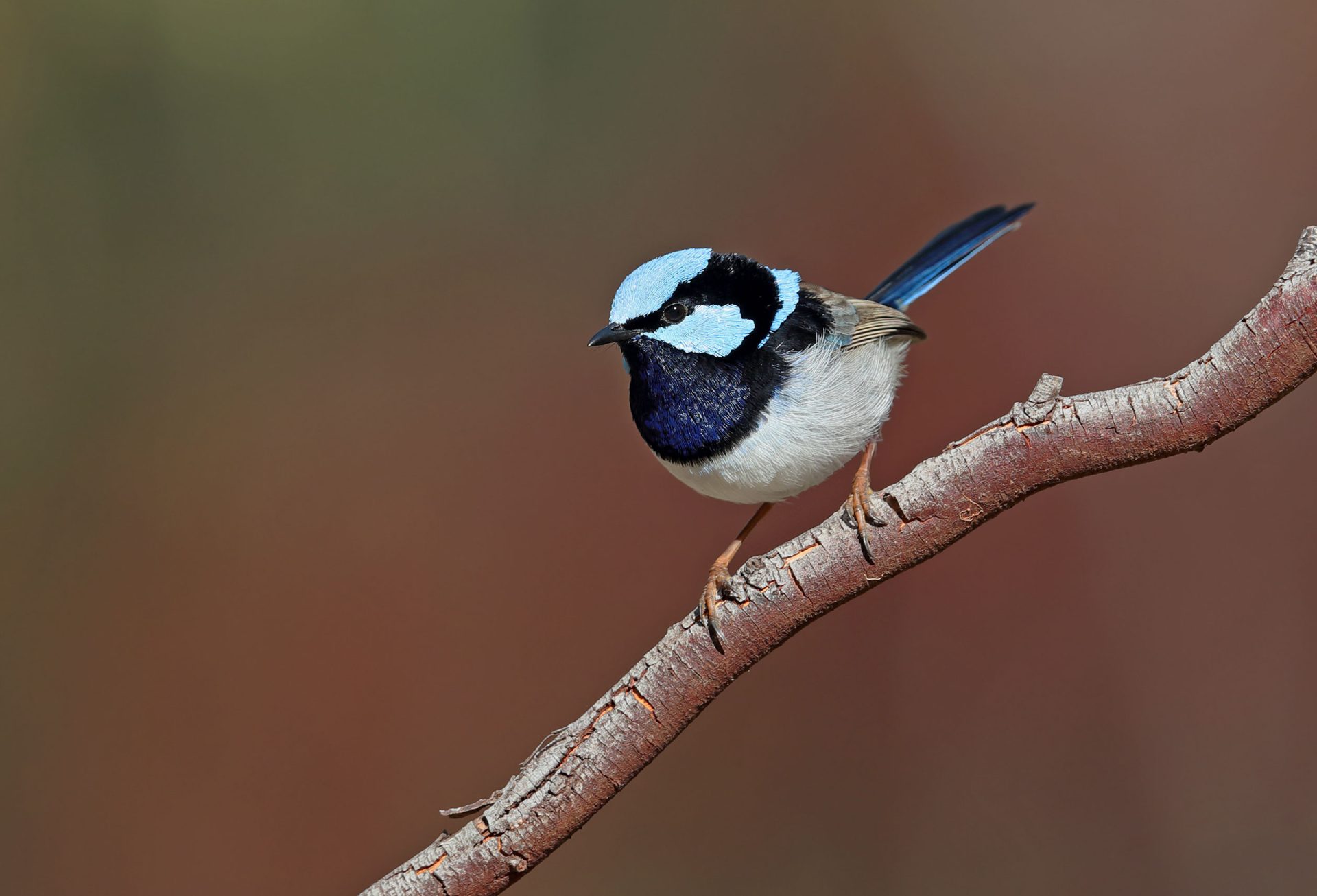By Ian Davidson and Chris Tzaros – Wangaratta Landcare & Sustainability
One of the great delights of the natural world is to be able to observe wildlife in their natural state. We are fortunate to be able to do so in this region, even in our gardens and parks. One of our most striking birds is the delightful Superb Fairy-wren. Family groups of these birds can be found wherever suitable dense understory vegetation exists and no cats are present. If the observer sits quietly near grassy areas next to shrubbery you can be rewarded with amazing scenes of these birds feeding, playing, teaching and squabbling amongst each other, seemingly unafraid of human presence. It can allow the observer to forget about the problems in the human world and lose oneself in the natural world.
With gleaming, velvety blue-and-black plumage, the male Superb Fairy-wren is easily distinguished and is undoubtedly the reason the species got its name the “Superb” Fairy-wren. These bright blue plumaged males are often accompanied by a band of brown “jenny wrens”, often assumed to be a harem of females, but a proportion of these are males which have not yet attained their breeding plumage. Females and young birds are mostly brown with a dull red-orange area around the eye and a brown bill. If you have access to binoculars the colours and antics of these exquisite birds are a wonder to witness.
Superb Fairy-wrens feed on insects and other small arthropods, including spiders and ants. These are caught mostly on the ground, but may also be taken from low bushes. Feeding generally takes place in small social groups.
Their untidy nest is a dome-shaped structure of grasses and other fine material with a clutch of three or four eggs. It is usually placed in a low bush and is constructed by the female. The female incubates the eggs alone, but both sexes feed the young.
Seen in most habitat types where suitable dense cover and low shrubs occur. They are common in urban parks and gardens, and can be seen in small social groups.
If you would like to enjoy them in your garden or nearby parkland, it is essential that pet cats are not allowed to roam free outside, because these mostly ground dwelling birds have little hope of escaping their predation.

